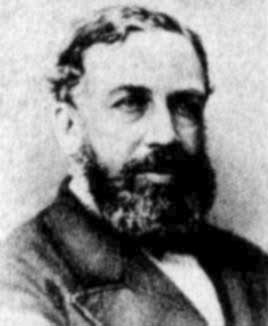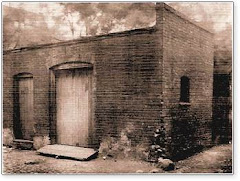Economic History to Business History
I. Economic History - Shift from Political Economy to Economics
1871-1874 - Marginalist Revolution gave birth to Neoclassical economics - "natural value" of a good is determined only by its subjective scarcity, i.e. the degree to which people's desire for that good exceeds its availability (in contrast to Marixism and socialism) (http://cepa.newschool.edu/het/essays/margrev/margrevcont.htm):
W. Stanley Jevons, The Theory of Political Economy, (New York: Macmillan, [1871]
Carl Menger, Principles of Economics, (trans. and ed., J. Dingwall and B.F. Hoselitz),
(New York: Free Press, [1871]
Léon Walras, Elements of Pure Economics: or The Theory of Social Wealth, ( Éléments d’économie politique pure; ou, Théorie de la Richesse Sociale; trans., W. Jaffé), (Chicago: Irwin, [1874]
Other significant contributors to the neoclassical school: Vilfredo Pareto, Manual of Political Economy (New York: Kelley)




Jevons (left) initiated change in concept of 'political economy' from realm of political science (theology, philosophy, law) to formal science of 'economics' (similar in precision with mathematics and physical sciences; stressed importance of deductive method in mathematics as basis technique for economic science - basis of neoclassical theory); central figure linking political economy with social policy; proposed theory of utility (connection between value in exchange and final [or marginal] utility) - way to measure utility contained in objects - measurement of 'commodity utility through human physical sensations' (decreases over time).
1871 - Harvard University appointed Charles Francis Dunbar as first full-time professor of economics in United States; emphasized class discussions relating public policy issues to broad economic principles.
1883 - Dunbar introduced first course in Economic History (at Harvard): "The Economic History of Europe and America Since 1763" (review of money, taxes, tariffs to illustrate principles of John Stuart Mills).
1885 - Small group interested in economics organized the American Economic Association (AEA) at a meeting in Saratoga, New York; February 3, 1923 - incorporated in Washington, DC; Richard T. Ely, actively involved in founding of Association, was first secretary; membership consisted mainly of college and university teachers of economics.
II. Professional Independence of Economics
November 1890 - British Economic Association established; arose amidst skirmishes in late 1880s between economists at Oxford and Cambridge Universities over who would be first to launch a professional journal; prevalent lack of professional self confidence; executive committee reluctant to hold annual conferences with papers and discussions as did AEA; 1902 - won Royal Charter, changed name to Royal Economic Society.
1890s - University of Chicago, Columbia University, Harvard University, Johns Hopkins University, University of Wisconsin established highly regarded economics departments.
1892 - William J. Ashley appointed to Chair in Economic History at Harvard (first in United States); first generation of American economic historians.
III. Birth of Business History
1925 - Wallace B. Donham, dean of Harvard' University's Graduate School of Business Administration (1919 to 1942), gathered the editor of the Boston Globe, the Federal Reserve agent attached to the Boston Federal Reserve Bank, and two or three others, formed a Business History Society. Membership composed of librarians, historians, businessmen, immediately began to educate companies and repositories to historical value of business operating records, acquired records for Baker Library at HBS. The fee for membership was $100 a year, the Society regularly issued a Bulletin containing news of its activities. Donham credited with founding of Business History as distinct, academic pursuit; invited Norman S.B. Gras and Henrietta Larson to come to HBS to found and teach a new discipline, business history, and hired Arthur Cole to head the new business library.
June 1926 - Bulletin of the Business Historical Society first published; 1954 - became Business History Review, one of the seminal sources for information on business history
1927 - Norman S. B. Gras took the position of American Chair of Business History at Harvard University

No comments:
Post a Comment